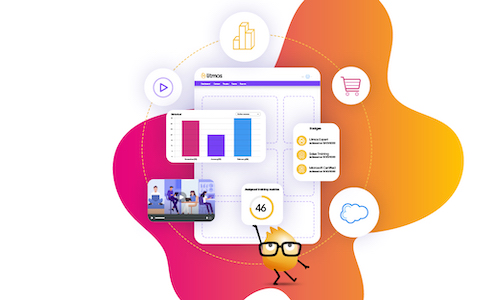Effective Sales Training Meets Reps at Every Career Stage
If you’ve been in sales a while, you know that no two salespeople are alike.
Your sales team is made up of very different people, all at different stages in their career. There’s the hire who is brand new to sales, the pro your organization hired away from a rival, the salesperson who has been with your organization for years, and — of course — your star performer.
All of these reps have varying skill levels, different career goals, and different gaps in their knowledge. So why would you try to meet their needs with just one or two kinds of sales training? The truth is that the most effective sales training needs to meet every learner where they’re at, no matter their career stage. In this blog post, we’ll explore the training strategies that work best for salespeople of all experience levels.
The lifecycle of a salesperson
We need different types of education throughout every stage of our life. The same can be said of a salesperson’s career; every stage of a sales career is different, with its own needs and challenges.
While there are some types of training that are universal to all kinds of reps — annual training events, or new product releases — most learning should be tailored to the needs of each rep. After all, the training a new rep needs is much different than the training needed by a seasoned professional. (And yes, your best reps do still need to learn.)
What training do sales representatives need throughout their careers?
As your sales team members progress through their careers, they will need a variety of learning content. For example:
- New hires need onboarding to better understand your organization, as well as sales in general.
- Established salespeople require both coaching and enablement to help them hit revenue targets.
- Partners require a well-balanced partner sales training program to help them be the best possible representatives of your organization.
- Sales stars need enablement and may be interested in leadership training to help advance their careers.
Your team may also require cross-functional training, mentoring, field training, or other types of training and sales enablement.
Why train for different stages in a salesperson’s career?
Sales can be a rewarding career, but there’s a reason salespeople tend to burn out. In the best of times, sales is fast-paced, full of looming quotas, potential rejections, and the need to make commissions on sales. More recently, sales teams have had to make changes to the way they sell, pivoting to a virtual selling model.
All of this can be overwhelming for brand new hires and struggling salespeople, who often leave the job. Additionally, many sales leaders leave their positions when they’re poached by rival organizations. In many cases, they are looking to advance their careers.
By providing training throughout the employee lifecycle, your organization can hang on to talent longer, as well as train your sales staff to be the best salespeople they can be.
Find out how to meet the training needs of your salespeople and partner resellers in our new eBook, Rev Up Revenue: Sales Training for Every Career Stage. This guide outlines the average career path of a salesperson and provides best practices for designing training programs that improve performance at every stage of a salesperson’s career.





